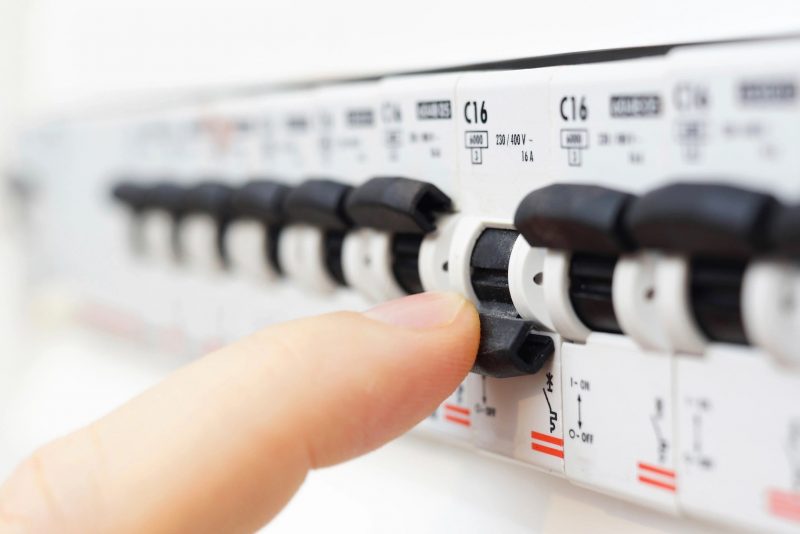Everything may seem fine, and then all of the sudden, your power may go out. In most cases, when this happens, you have a tripped circuit breaker. Electrical issues, such as these can be a hassle – especially if you don’t know what’s wrong.
There are several reasons that a breaker may trip, with some of the most common listed below.
Why Do Circuit Breakers Trip?
A breaker trip is usually the result of the circuit that is tied to your circuit breaker exceeding the safe parameters. This problem can be identified as a sudden loss of power to certain appliances – such as those on a dedicated circuit like your microwave or fridge – or be a loss of power in your home that is limited to a certain “zone.”
Common Causes of Tripped Circuit Breakers
- Overloads
A circuit overloading is the most common reason a breaker trips. This means that you have too much “stuff” loaded on the actual breaker. Each breaker has a “safe limit” of power that it will supply to the appliances and your home. If this limit is exceeded, then the breaker is going to trip.
This issue is extremely common when you are trying to install new appliances that your electric system is unable to support, or if you plug in a high-powered appliance, such as a space heater, in an area that doesn’t have the proper amperage.
- Short Circuiting
Another issue that is common is short circuiting. It occurs when an active or “hot” wire comes in contact with another hot wire. In most cases, you are going to see discoloration around an outlet, and you may even smell something burning when this happens.
If you have a short circuit, then you shouldn’t interact with the outlet. Leave the breaker in its tripped state and contact an electrician.
- Ground Fault
These are similar to short circuits, and in some cases identical. The only difference is the actual interaction. The ground fault will occur if a hot wire meets or touches the grounding wire, which results in the safe “grounding” of your outlet becoming dangerous. In this situation, the best move is to call a professional electrician.
- Appliance Failure
An incompatible, faulty or damaged appliance can wind up drawing more power than necessary, which will initiate an overload situation. If you experience a breaker trip, it is a good idea to check all the appliances that are related to the breaker. If any are hotter than they usually are, then the issue may not be the breaker, but the appliance.
The fact is, there are more than a few reasons you may experience tripped breakers. While you may think you can handle the situation, it is best to call a professional electrician. They can get to the bottom of the problem and determine what the underlying issue is. This will ensure that the problem is fixed properly and that it doesn’t occur again in the future.
